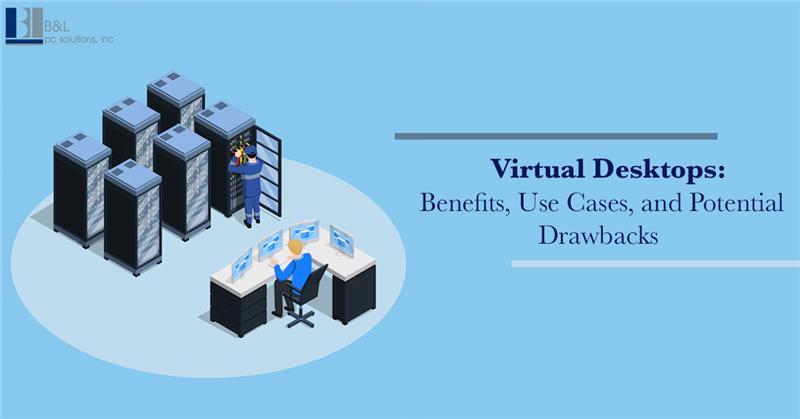
As more people rely on digital services, reliable hosting solutions have become essential. Virtual servers offer affordable, flexible, and practical hosting options for applications, software, websites, and more. They also allow for the modification of additional computing resources as needed. Given these capabilities, virtual servers are ideal for companies looking to expand and adapt to today's evolving environment.
The following guide will discuss everything you should know, including virtual servers, how they compare to other hosting types, and, more importantly, their usefulness.
Recent studies indicate that the worldwide market for server virtualization is expected to rise steeply in the coming years as more organizations shift from actual physical servers to virtual ones. This trend underlines the necessity of considering virtual servers and their place in the IT environment.
What is a Virtual Server?
A VS operates on a distinct virtual platform separate from a physical server. It shares physical hardware with other servers. It implies a service that utilizes a portion of a more extensive physical server rather than being separate from it. It is comparable to dedicated server hosting, but it is more affordable.
They can also host individual applications and operating systems while giving users their independent CPU, RAM, and drive space. These servers are typically employed in hosting websites/ Web applications and databases and generally provide manageable and stable platforms for business organizations of different scales.
How does a Virtual Server Work?
The system runs virtual servers, a concept known as virtualization. The application implemented here is a hypervisor that splits the physical server into several independent virtual machines. It works in a manner as follows:
-
Resource Allocation: The Hypervisor controls the physical resources like CPU, memory, etc., which allows a virtual server to be created.
-
Isolation: Every virtual server has its own space on its particular hardware, so it will not be affected or accessed by other servers.
-
Scalability: Resources can be adjusted to meet user needs, making virtual servers a suitable option for implementation.
The most commonly used virtualization software include VMware, Hyper-V, and KVM.
VPS vs. Dedicated Server
Many companies often compare virtual private servers (VPS) with dedicated servers when choosing a virtual server service. Here is a table that underscores the fundamental differences between the above two:
| Feature | Virtual Private Server (VPS) | Dedicated Server |
|---|---|---|
| Resource Allocation | Shares resources on a physical server | Full access to all server resources |
| Cost | Affordable and cost-effective | Higher cost due to exclusive resource usage |
| Performance | Suitable for moderate traffic websites | Ideal for high-performance applications |
| Scalability | Easily scalable as business grows | Limited scalability without hardware upgrades |
| Technical Expertise | May require basic management skills | Requires advanced server management skills |
By hosting your servers with B&L PC Solutions, you can easily virtualize them. It will also give the company credibility and help it reach a wider audience. If you have any questions, reach out to us today to begin!
Virtual Server Use Cases
Application-wise, virtual servers are suitable for web hosting and application development, which involves containing secure data and e-commerce. That is why their use suits various business activities and is recognized for reliability and scalability. Virtual servers are highly adaptable and serve multiple functions, including:
-
Web Hosting: Offering more dependable hosting of sites than shared.
-
Application Development: Providing distinct environments for application development and application production.
-
Data Storage: Data storage and protection, as well as data backup.
-
E-commerce Platforms: Supplying e-commerce with reliable and continuously scalable performance.
Virtual servers are used widely by businesses in all fields, including information technology, retail, and health care.
Advantages of Virtual Private Server (VPS) Hosting:
VPS hosting is relatively affordable and includes greater flexibility and client personalization compared to other types of hosting. This type of hosting is more secure, reliable, and convenient than shared hosting and is, therefore, suitable for businesses searching for purposeful resources at a more affordable cost.
VPS hosting offers excellent reliability and availability while providing complete settings management.
-
Cost-Effective: Virtual servers have many features that maintain the advantages of dedicated ones while being economical, which is right for the needs of small and medium-sized businesses.
-
Scalability: They can be increased or modified depending on the business; hence, it is a good strategy since costs are regulated.
-
Customization: Users are fully responsible for the servers and have the freedom to modify the environment in any way they choose.
-
Enhanced Security: VPS hosting is safer than shared hosting because each virtual server is different from the other.
Drawbacks of VPS Web Hosting
Regardless, VPS hosting has its advantages and disadvantages. It is usually more costly than shared hosting and may sometimes require some technical support to operate. Availability may be negatively affected if the host allocates more resources to their web servers than they can realistically provide. Memory constraints may also arise because these rental servers differ from dedicated ones, potentially impacting high-demand applications.
-
Resource Limitations: Since VPSs share physical equipment with the other servers, the results will depend on the level of traffic demand.
-
Technical Expertise Required: To use a VPS, one may need some understanding of server management, especially for complicated settings.
-
Cost Compared to Shared Hosting: VPS services are more affordable than dedicated servers but relatively more expensive than shared hosting plans.
-
Risk of Overselling by Providers: Using some hosting providers may involve risks, particularly with shared servers. Resources can be oversold, which may compromise performance.
Read More Blog : VPN vs. Virtual Desktop: What's the Difference in 2025?
Host Your Web Applications on a Virtual Server:
-
Employing a virtual server for hosting web applications guarantees reliability, flexibility, and high-end performance.
-
Virtual servers enable the application of customized server environments since they support various programming languages and frameworks.
-
They offer high availability and secure data storage to ensure the business's essential needs for multiple applications are met with reliability.
-
Because virtual servers are highly reliable, flexible, and efficient, web application developers prefer them. They let developers tweak the systems with references to specific frameworks and programming languages to guarantee compatibility.
-
Virtual servers remain consistently available, unlike physical servers that may frequently be offline for maintenance. It makes them highly reliable for businesses that run critical applications.
For instance, an e-commerce firm can employ a VPS to host its site and guarantee it will run as determined when the platform attracts many users.
Conclusion
It is an excellent solution for all businesses willing to find a solution that will offer them cost-effectiveness, reasonable performance, and possible expansion. Thus, by applying virtualization, they can offer secure and effective web hosting services and other IT computing tasks. Learning about virtual servers, what they can do for you, and what they can't do for you is always of great help, whether you are a small business or a growing enterprise. Managed IT Services Long Island & IT Managed Service Provider can further enhance these capabilities by providing tailored support and expert management of your IT infrastructure.
Are you and your business ready to embrace server virtualization on Long Island? Allow B&L PC Solutions to give solutions that can precisely fit your business requirements. Reach out now!
Frequently Asked Questions (FAQs) About Virtual Servers:
What are the differences between VPS and cloud hosting services?
VPS hosting is deployed on one physical server, while cloud hosting employs multiple servers to deliver services to enhance high availability.
What is the average price of a VPS?
Thus, it is a low-cost hosting solution that costs between $20 and $100 per month, depending on the Virtual Private Server provider.
Can more than one domain be hosted on a single VPS?
Of course, most VPS hosting plans permit the web host to host multiple domains in distinct directories or subdomains.
Is VPS hosting secure?
VPS hosting provides a higher level of security than shared hosting due to isolation and resources.
Is it necessary to have my technical knowledge to start managing the VPS?
Many hosting providers offer managed services, so even those with minimal technical knowledge can easily use their solutions.
Tags: Advantages of Virtual Private Server Hosting, Drawbacks of VPS Web Hosting, How does Virtual Server Work?, server virtualization, server virtualization on Long Island, Virtual Desktops, Virtual Server Use Cases, VPS vs. Dedicated Server, What is a Virtual Server?





